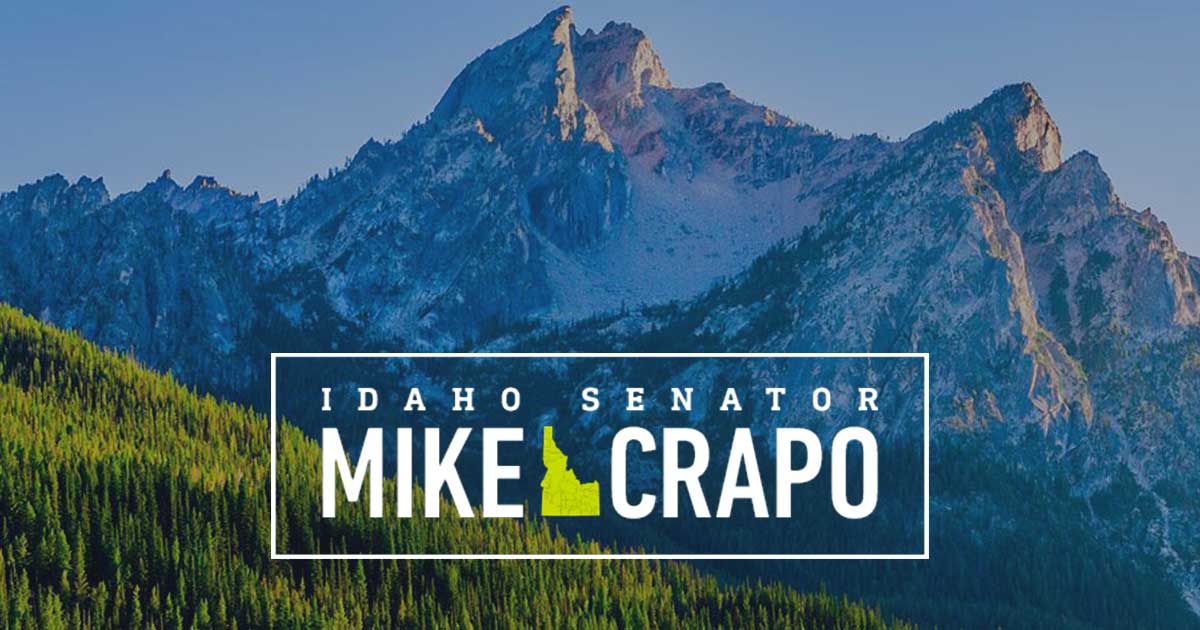Source: United States Senator for Idaho Mike Crapo
September 29, 2021
Washington, D.C.–The U.S. Senate unanimously agreed to a Senate Resolution designating September 19-25, 2021, as National Forensic Science Week. The Resolution, introduced by U.S. Senator Mike Crapo (R-Idaho), along with Senators Jim Risch (R-Idaho), Dianne Feinstein (D-California) and Raphael Warnock (D-Georgia), recognizes the role forensic science plays in the investigation, prosecution and conviction of crimes, as well as exoneration of the innocent.
“The Senate’s unanimous support of this resolution pays tribute to the significant contributions forensic scientist professionals make in the criminal justice system,” said Crapo. “The unbiased, scientific role of forensic scientists is imperative to investigating crimes and bringing justice for victims and for exonerating the falsely accused.”
Read the full text of the resolution HERE and below.
Whereas the Senate is committed to the use of forensic science in the investigation of crimes, the prosecution and conviction of the correct perpetrators of crimes, and the exoneration of innocent individuals falsely accused of crimes in the United States;
Whereas forensic science service providers address critical questions in civil and criminal investigations and trials in the United States, including by providing scientific conclusions relating to forensic evidence;
Whereas forensic science service providers partner with—
(1) Federal agencies to build and maintain criminal databases relating to latent prints, DNA, and other information relevant to criminal cases; and
(2) Federal, State, and local agencies to ensure public safety;
Whereas forensic science service providers serve a vital role in the criminal justice system by providing scientific information to investigators and officers of the court; and
Whereas the fourth week in September 2021 is recognized as ‘‘National Forensic Science Week’’: Now, therefore, be it
Resolved, That the Senate—
(1) supports the goals and ideals of National Forensic Science Week; and
(2) recognizes that National Forensic Science Week provides a special opportunity for—
(A) forensic science service providers to—
(i) acknowledge the contributions of forensic scientists in the laboratories in which those individuals work;
(ii) organize community events to encourage a better understanding of forensic science;
(iii) provide tours to Federal, State, and local policymakers to assist those individuals in gaining better insight into the current capabilities of forensic science service providers and the future demands that forensic science service providers will face; and
(iv) contact local media outlets and invite those groups to cover events hosted during National Forensic Science Week;
(B) local policymakers to—
(i) recognize, through formal commendation or resolution, the contributions of local forensic science laboratories to the communities of those policymakers;
(ii) formally declare the fourth week of September 2020 to be ‘‘National Forensic Science Week’’ by proclamation;
(iii) visit local forensic science laboratories to gain an understanding of the capabilities and needs of those laboratories; and
(iv) discuss the operational needs of State and local forensic science laboratories;
(C) individuals in the United States, including members of the media, to—
(i) attend community events sponsored by local forensic science laboratories;
(ii) take tours of local forensic science laboratories; and
(iii) ask local forensic science laboratories about the operational and legislative needs of those laboratories;
(D) members of the media to highlight local news stories that focus on the work of local forensic science laboratories in the communities that those laboratories serve; and
(E) public safety officers, law enforcement officers, and officers of the court to—
(i) attend community events sponsored by local forensic science laboratories;
(ii) take tours of local forensic science laboratories;
(iii) discuss the operational needs of State and local forensic science laboratories; and
(iv) engage with local forensic science laboratories about working together more effectively.
###
